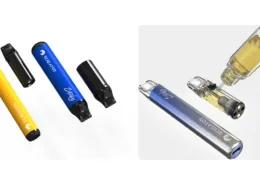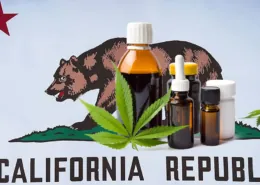Global Vaping Rates on the Rise: A Key Factor in Decreasing Smoking Worldwide
Published this week in Drugs, Habits, and Social Policy, a new peer-reviewed paper revealed an astonishing 20% increase in global vaping rates, estimating a total of 82 million vapers worldwide in 2021, up from 68 million in 2020. The study’s authors, including K.A.C. Director and Emeritus Professor at Imperial College London, Prof Gerry Stimson, suggest that this increase is evidence of the effectiveness of vaping products in helping smokers quit.
The UK’s Bold Move: Free Vapes to Quit Smoking
The UK government recently took a significant step by giving away free vapes to smokers seeking to quit. This move exemplifies how the rise in vaping rates should be viewed as an opportunity rather than a threat to public health. And it seems to be working, as the increase in vaping rates is paralleled by a decrease in smoking rates.
Decreased Smoking Rates in the UK: The ONS Data
Recent data from the Office for National Statistics (ONS) in the UK showed a drop in smoking rates from 14.0% in 2020 to 13.3% in 2021 among people aged 18 or over. This drop coincided with an increase in vaping rates, with 7.7% of those aged 16 and over reporting e-cigarette use compared to 6.4% in 2020. The ONS highlighted that vaping played a “major role” in reducing smoking in the UK and that vaping rates were highest among current smokers at 25.3% and ex-smokers at 15.0%.

Decreased Smoking Rates in the US: Evidence from North Dakota
Neil Charvat’s Data on Vaping and Smoking Trends
Similar trends have been observed in the US. Neil Charvat, the Director of the North Dakota Department of Health & Human Services’ tobacco prevention and control program, recently shared data that showed a significant increase in vaping across the state, which corresponded to a decrease in smoking.
Teen Smoking Rates: A Nationwide Analysis
A research team in Dakota analyzed nationwide data on tobacco product use among 8th, 10th, and 12th-graders from 1991 to 2019. The data revealed a decline in daily smoking rates among 12th-grade boys, from 4.9% annual growth between 1991 and 1998 to an 8% annual decline between 1998 and 2006, followed by a 1.6% decline from 2006 to 2012. Between 2012 and 2019, there was a 17% annual decline, with daily smoking among 12th-graders dropping to about 2% by 2019. This positive trend was consistent across all grades, genders, and racial backgrounds.
Alaska’s Surprising Vaping Increase
The Highest Increase in Vaping Rates in the US
HealthAdvisor’s report for Alaska, using data from the Center for Disease Control and Prevention’s Behavioral Risk Factor Surveillance System, revealed that Alaska has the highest rate of increase in vaping in the US. The rate of vaping among young adults aged between 18 and 24 has more than tripled, from 4.8% in 2019 to 15.8% in 2021. The 2022 Alaska Tobacco Facts update released by the Alaska Department of Health confirmed these figures.
| Age Group | Year | Vaping Rate |
|---|---|---|
| 18-24 | 2019 | 4.8% |
| 18-24 | 2021 | 15.8% |
The Missing Link: Smoking Rates in Alaska
What remains unclear is whether the increase in vaping rates in Alaska is linked to a decrease in smoking rates, as observed in other regions.
Europe’s Shift Towards Alternative Nicotine Products
Denmark’s Decline in Smoking Rates
Recent reports from Europe indicate that the increased use of alternative nicotine products, such as vapes, snus, and nicotine pouches, has led to a drop in smoking rates among Danes. Data released by Denmark’s National Institute of Public Health and the University of Southern Denmark on behalf of the Danish Health Authority showed that 35.1% of 15- to 29-year-olds used alternative products daily in 2021, up from 26.3% in 2020.
Smokefree Nicotine Products on the Rise
In parallel, overall cigarette use in Denmark dropped from 20.1% to 19%, and the overall percentage of smokefree nicotine products rose from 9.1% to 12.9%.
Embracing the Vaping Revolution for Public Health
The rise in vaping rates worldwide appears to be linked to decreased smoking rates, offering a potential public health opportunity to help smokers quit. By embracing vaping as an alternative to traditional tobacco products, countries like the UK, US, and Denmark have seen significant reductions in smoking rates. The challenge now lies in continuing to monitor and regulate the vaping industry to ensure it remains a safer alternative to smoking.
Frequently Asked Questions
What is the estimated number of vapers worldwide in 2021?
The estimated number of vapers worldwide in 2021 is approximately 82 million.
How has the UK government supported the rise in vaping rates?
The UK government has given away free vapes to smokers seeking to quit, viewing the rise in vaping rates as an opportunity to reduce smoking rates.
What trends have been observed in teen smoking rates in the US?
Teen smoking rates in the US have declined significantly in recent years, with a particularly sharp decline between 2012 and 2019.
Which US state has the highest increase in vaping rates?
Alaska has the highest increase in vaping rates in the US, with the rate among young adults aged 18-24 more than tripling from 2019 to 2021.
What impact has the increase in alternative nicotine products had on smoking rates in Denmark?
The increase in alternative nicotine products, such as vapes, snus, and nicotine pouches, has led to a drop in smoking rates among Danes.
- Is It Illegal to Vape or Smoke While Driving in Minnesota? - August 15, 2025
- American Airlines Vaping Passenger Alleges Assault in Police Report - August 15, 2025
- NEXA PIX 35K Disposable Vape with Crystal Tank Review - August 15, 2025








